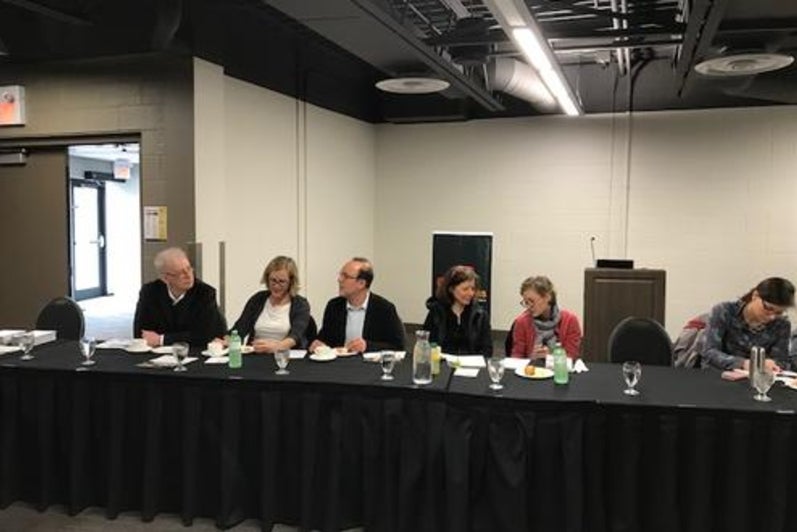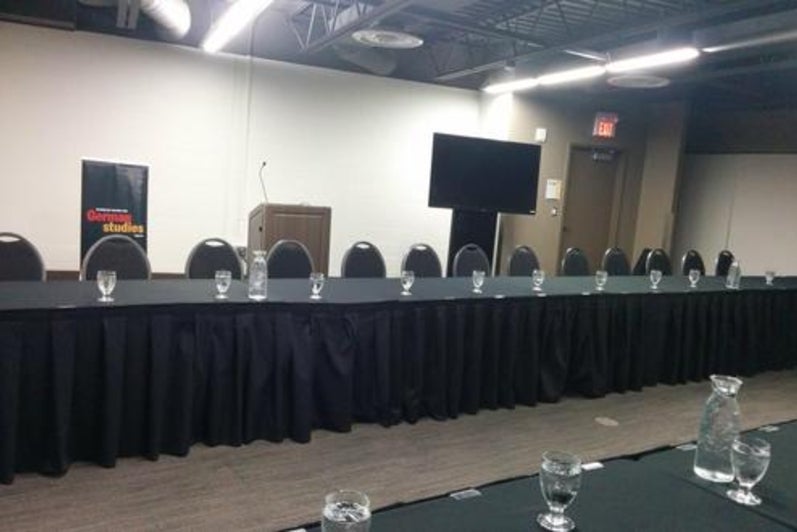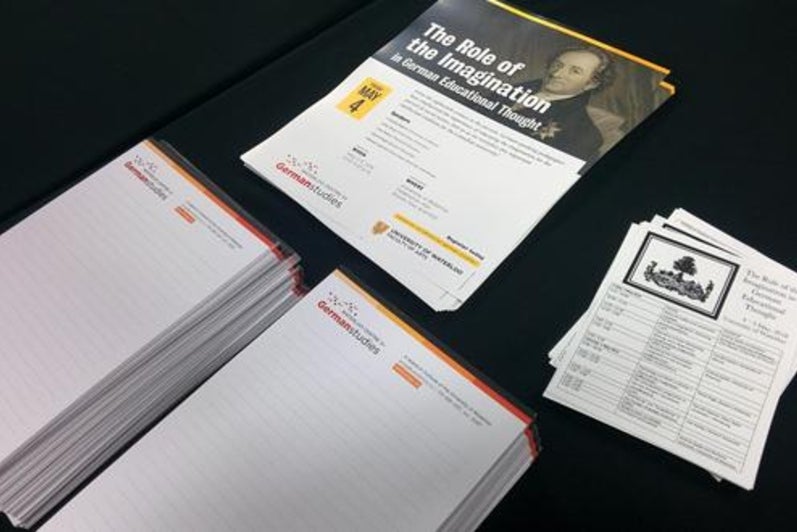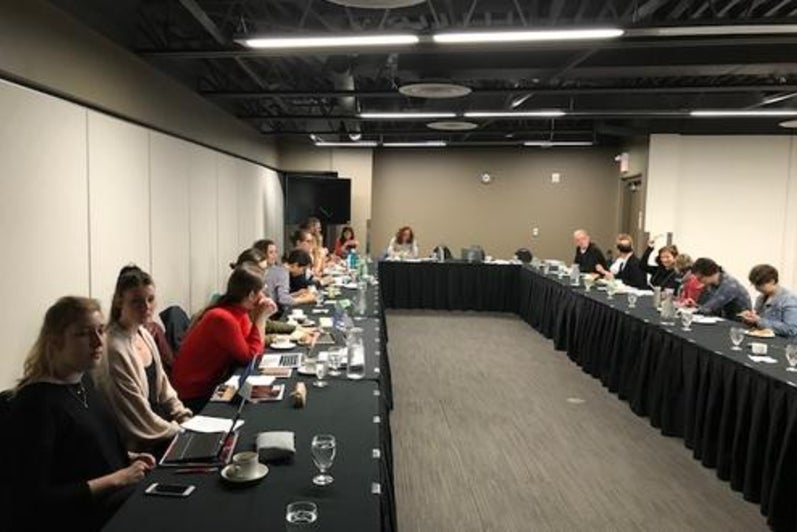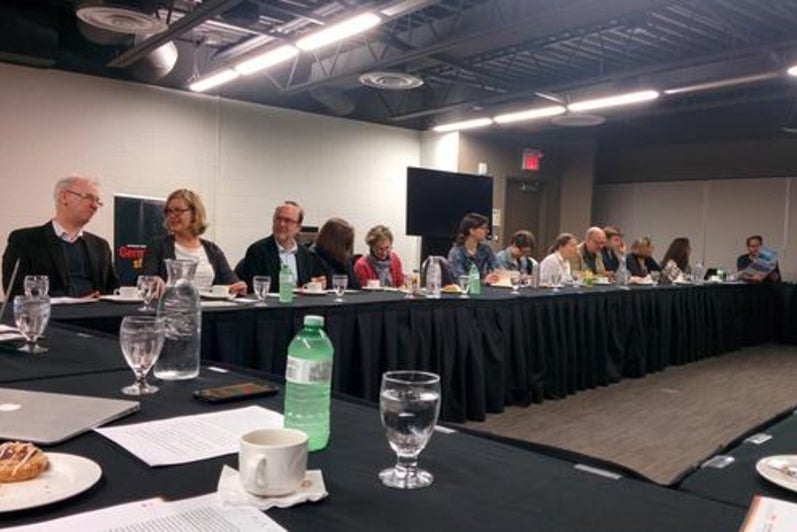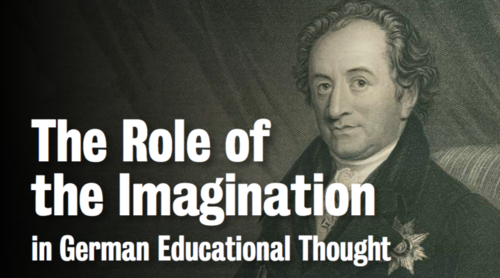
From the eighteenth century to the present, German-speaking pedagogues (e.g., Johann Gottfried Herder, Johann Wolfgang Goethe, Friedrich Schiller, and Hannah Arendt) have emphasized the importance of educating the imagination for the pursuit of social justice. Join us as we revitalize this important intellectual tradition for the Canadian university!
The Role of the Imagination in German Educational Thought will be a two day workshop. Participants will have the opportunity to listen to experts in the field and ask questions in round-table sessions. Please bookmark this page and check back for more updates!
Thank you to all participants and speakers. The workshop was a great success and we couldn't have done it without you.
Take a look at some of the pictures from the workshop:
Schedule
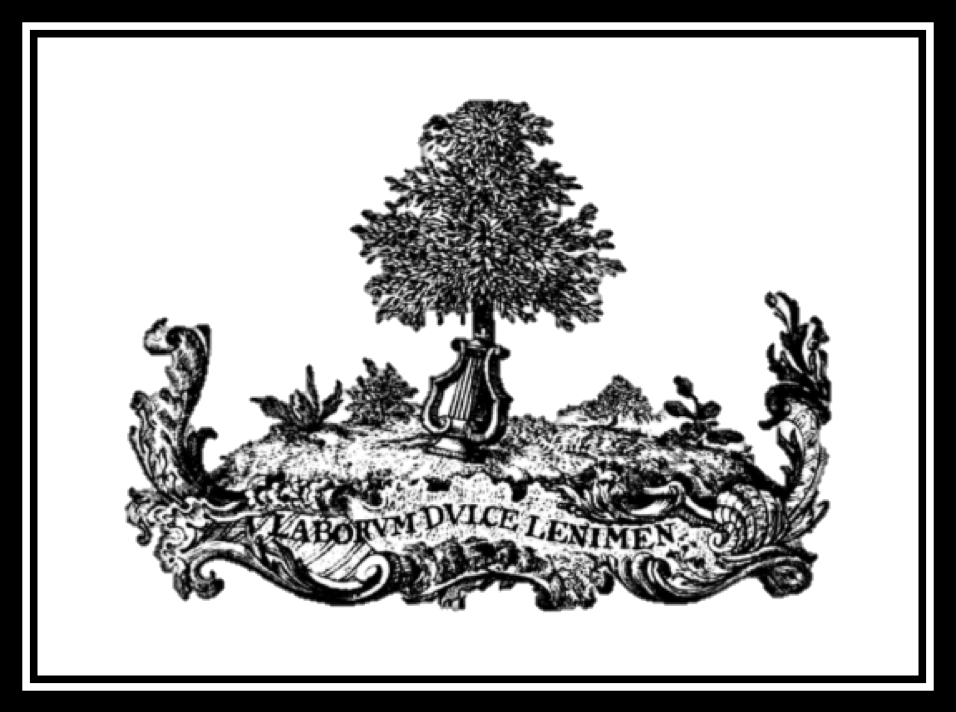
The Role of Imagination in German Educational Thought
4 – 5 May, 2018
University of Waterloo (Federation Hall - 1044 and 1033)
|
Friday, 4 May 2018 |
Activity |
Speaker(s) |
|
9:15 – 10:00 |
Welcome coffee and continental breakfast |
Andrea Speltz and Barbara Schmenk, University of Waterloo |
|
10:00 – 11:30 |
John Noyes, University of Toronto |
|
|
11:30 – 12:30 |
Lunch |
|
|
12:30 – 2:00 |
Education in Crisis: Witnessing, Bildung, and a Responsive Transformative Imagination |
Claudia Eppert, University of Alberta |
|
2:00 – 2:30 |
Coffee break |
|
|
2:30 – 4:00 |
Educating the Cosmopolitan Imagination in the European Enlightenment |
Andrea Speltz, University of Waterloo |
|
4:00 – 5:30 |
Poster presentations |
|
|
6:00 |
Dinner at Sole |
|
|
Saturday, 5 May 2018 |
||
|
9:00 – 10:30 |
David Pugh, Queen’s University |
|
|
10:30 – 11:00 |
Coffee break |
|
|
11:00 – 12:30 |
The Cosmopolitan Imagination in German Thought: Educational Considerations |
Hannah Spector, Penn State University – Harrisburg |
|
12:30 – 1:30 |
Lunch |
|
|
1:30 – 3:00 |
“Einbildung” and “Ausbildung” in the Foreign Language Classroom |
Lisa Parkes, Harvard University |
|
3:00 – 3:30 |
Coffee |
|
|
3:30 – 4:30 |
Student-led roundtable |
|
|
4:30 – 5:00 |
Conclusion and outlook |
Andrea Speltz and Barbara Schmenk, University of Waterloo |
Topics
Claudia Eppert - University of Alberta
Education in Crisis: Witnessing, Bildung, and a Responsive Transformative Imagination
This lecture addresses educational endeavors to bear witness and cultivate imaginations responsive and responsible to our present and future life-world. We live in times of climate change, the extinction of plant and animal life, nuclear threat, and pervasive anxiety and disease. Yet personal and social transformation toward ecological sustainability and interdependent well-being proves slow and difficult. Why? What psycho-social challenges inform transitions from indifference to care and action? What understandings of the roles and purposes of education might delimit and generate transformative consciousness? At issue in these questions is a call for deeper inquiry into ontological and contemplative underpinnings of contemporary educational structures, intimacies between losses of habitat and losses of imagination, and relationships between imagination and ethical sensitivity. This lecture considers fictions and possibilities of Bildung and dynamics of a responsive transformational imagination with reference to German folklore, witness/trauma studies scholarship, Buddhist and ecological thought, philosophers Hans Georg Gadamer and Arthur Schopenhauer, and Holocaust testimony.
Hannah Spector - Penn State University – Harrisburg
The Cosmopolitan Imagination in German thought: Educational Considerations
The aim of this paper is three-fold: to examine the shifting terrain of scholarship on the cosmopolitan imagination in German thought; to highlight German social theorist Ulrich Beck’s delineation between philosophical-normative cosmopolitanism and descriptive-analytical cosmopolitanism. For Beck, the cosmopolitan imagination is characterized by a call to action on manufactured global risks and catastrophes; to reconceptualize the aims of education in light of “the cosmopolitan moment” that is world risk society. This analysis will begin with a brief overview of (counter)Enlightenment articulations of cosmopolitanism vis-à-vis Kant’s proposal for a cosmopolitan constitution and Herder’s characterization of the homelessness and heartlessness of cosmopolitanism. The paper will then move on to studying the cosmopolitan imagination in 20th century German thought a la Hannah Arendt’s writings that respond to National Socialism. The last analysis will contextualize cosmopolitanism in and for 21st century questions and concerns that were un/imaginable centuries before.
David Pugh - Queen’s University
Psychology and Myth in Schiller’s Theory of the Imagination
My contribution will deal with Schiller’s theory of the imagination, distinguishing between the psychological foundation of the concept and the way in which, through his tendency to think in terms of poetic metaphor, what starts out as a mental faculty metamorphoses into a mythical realm, with the result that it becomes burdened with utopian expectations. Nonetheless I shall look for echoes of his theory, notably its modes of “Spiel” and “Schein,” in the writings of modern defenders of the artistic imagination. The dilemma that will come to light is that, whereas a writer like Nussbaum sees the imagination as a means of enhancing the recipient’s empathy, Schiller’s emphasis on abstraction from all emotion (unselfish and selfish alike) would seem to exclude the possibility of the imagination bringing about any ethical end at all.
Lisa Parkes - Harvard University
Einbildung and Ausbildung in the Foreign Language Classroom
The present paper addresses the distinction between education as professional training (Ausbildung) and education as personal development (Bildung) by turning to classroom examples of language-learning based on dramatic performance. This focus on drama’s capacity to impart new manners of critical reflection responds to increasingly divided positions between utilitarian and contextualist views of language. Crucial in this regard is the etymological rootedness of Bildung in ideas relating to “image” (Bild) and the “imagination” (Einbildung), which underscore the central role of individualized creativity and ethical formation (bilden, “to create, to educate”)—processes that generally summon a specific “model” (Vorbild) for pedagogical guidance. Treating language as nomenclature that can be applied to a ready-made world enables and justifies the production of quantifiable outcomes. In contrast, through the demands of embodied performance, students undergo the kind of intellectual development that may allow them to see the world not as it already is but rather as it could be.
John Noyes - University of Toronto
Herder's imagination. Educating across Boundaries.
In his Journal of 1769, Herder sketches out an innovative reform plan for the Riga school system. This is intended above all to provide a holistic and dynamic education based on experiential learning, not the abstract mediation of abstract knowledge. The role of the imagination plays a central role in this respect. It aligns the learning process with the natural constitution of the human being. But it also promises that certain boundaries might be crossed: cultural, conceptual, also disciplinary and institutional. The idea of how imagination nurtures the growing mind provides a key to understanding Herder's musings in this same work (and others) on the possibilities of interpreting and understanding the world.
